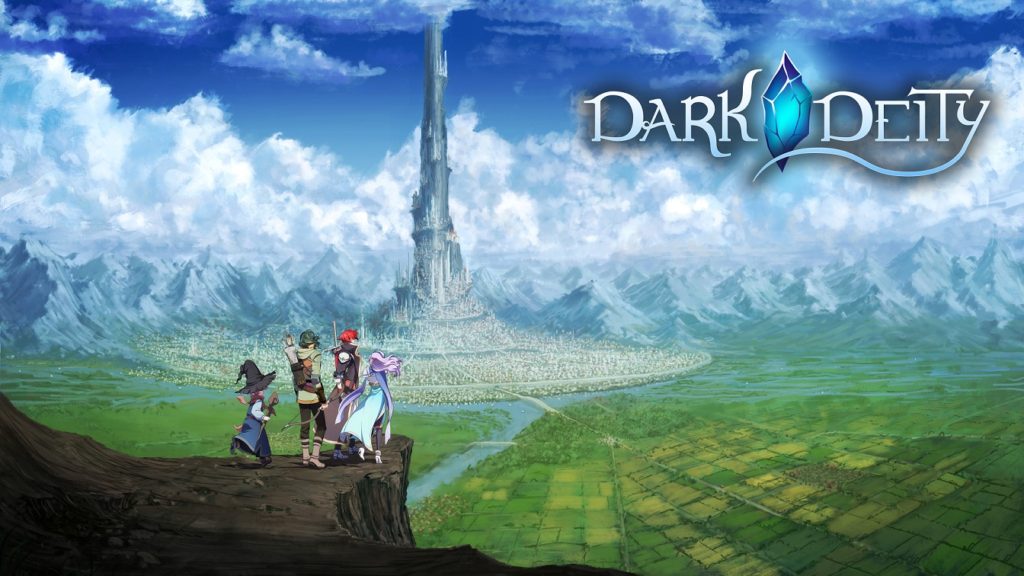
Dark Deity, developed by indie developer Sword & Axe LLC an publisher Freedom Games, started life as a Kickstarter by first time developer Charles Moore and has garnered over $74,000 in support from over 2,000 backers. Dark Deity aims to be a new, modern version of classic strategy RPG (SRPG) games such as Fire Emblem and Final Fantasy Tactics. The DNA of these beloved franchises can be clearly seen in Dark Deity’s gameplay, story, and mechanics but with some added twists in the mix. Despite being a fan project, Dark Deity proves that it can stand with its gaming forefathers as it delivers the tactical gameplay and engaging characters and story that fans of the genre have come to expect.
A Return to Form
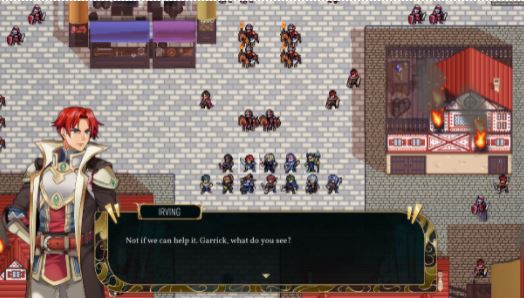
The biggest selling point of Dark Deity is its faithful return to the formula of older SRPGs. This includes the writing, with Dark Deity choosing to create characters and a story that would fit in any of the older Fire Emblem or Final Fantasy Tactics games. The story is relatively straightforward, our young protagonists are caught up in a war and must uncover the mysteries that revolve around their world. Magic items, dragons and gods are, of course, included, rounding out all of the typical genre tropes. Although this might sound a bit negative, as if Dark Deity is just trying to copy other games, I would argue that it acts more like a shot of nostalgia. The story and characters can be a bit cliché, but so were all of those older games. It’s like eating pizza bagels as an adult. Sure, objectively, they’re not that great but every bite just brings you back to when life was simpler, when your greatest struggle was figuring out a way to sneak your Gameboy under your pillow before your mom came in.
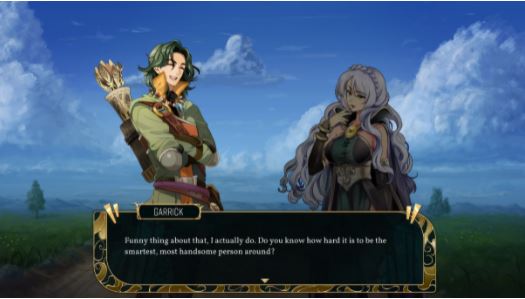
Supports, or bonds as they are called in Dark Deity, will be the primary way that you will interact with the story and for the most part, are perfectly alright. There will be some characters that you will just not like, that lean too hard into overly campy or annoying tropes. But, for the most part, I think the bonds are where you will enjoy the effort that the developers put into the writing the most. There were characters that I had to force to stay viable as I moved into endgame just because I enjoyed their bond conversations that much.
Of Course…Interesting Maneuver
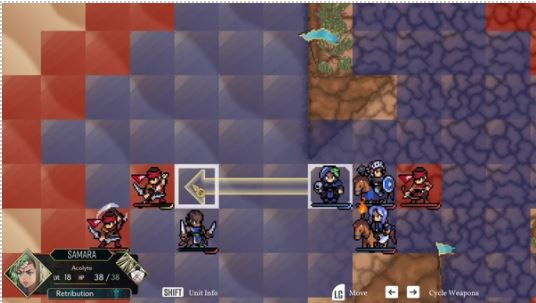
The gameplay of Dark Deity will be instantly recognizable to anyone who’s played a Fire Emblem game before – a bunch of sprites laid out on a giant grid and an objective that needs to be accomplished. Maneuvering around the map is accomplished in the same way as Fire Emblem, with each unit having a certain number of tiles that can be moved with the option for different movement types. Outside of these basic aspects though, most of the changes that Dark Deity makes to the SRPG formula can be found here, in the gameplay.
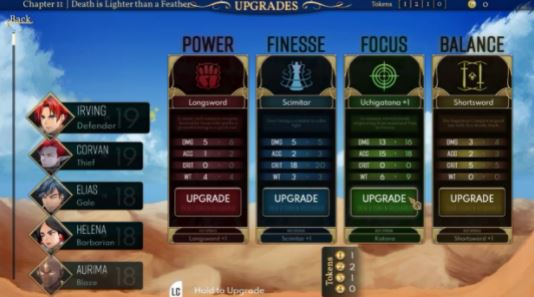
The weapon system has been changed from having to choose what weapons to have in your inventory to the game providing, from the get-go, 4 different weapons for every character. These weapons will never break and can be upgraded in between chapters. The weapons that a character is given are dependent on their class. Using a warrior? Choose between 4 swords. Thinking magic may be your style? There are a bunch of different flavors of magic to choose from. Each weapon provides a different utility to the player, whether it be high damage, high accuracy, or low weight. Removing the micromanaging that usually goes into deciding which weapons to equip your forces does simplify this aspect of the game but makes it easier for new players to always have an appropriate weapon for the task. Now, if only there was a more in-depth tutorial for this system.
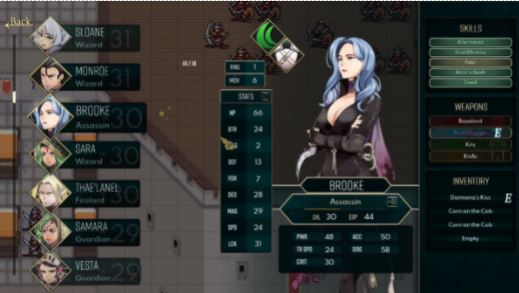
The other large change that Dark Deity makes is to the class system. Although the game doesn’t explicitly tell you this (again, lack of tutorial hurts here), each new recruit to your army can be tweaked to your liking. The aptitudes that dictate the chance that your unit will gain a certain stat on level up are what directly affect what the stats of your new unit will have. This means that despite each unit only being able to stay within a set path in terms of what class they can be, there is a level of flexibility in Dark Deity that is not present in similar games. I’m actually planning on doing multiple playthroughs now to see how I can subtly change each of my units, based on what I did on my first playthrough. My mage wasn’t hitting as hard as I’d like, so on my next playthrough, I’ll change what classes I had picked for her. This adds to the replay value of Dark Deity and with over 2 dozen available characters, means there’s a lot of different combinations and playstyles that you can experiment with.
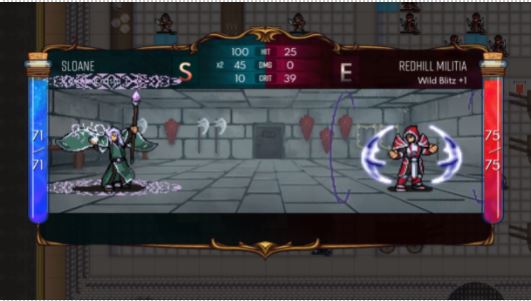
A lot of the changes that Dark Deity makes are great and although it does take a little getting used to, I was in a pretty solid rhythm by Chapter 8 or so. However, my major criticism of this game, gameplay wise, is in the enemy units and how unfair they can feel sometimes. Enemy units flood the map and often will over-level most of your army. Although this means there’s a good challenge in Dark Deity, it means when many of the characters I personally liked started to fall behind, I had to bench them in favor of new recruits that had a higher level. The enemy units’ stats are also strange. The stats are set up in a way where it’s very common that you’ll have 5 enemies attacking a single unit and miss every single hit. That feels great right? It would, until that 6th enemy that attacks lands that one arrow and one shots your unit. There were a lot of instances where it felt like the enemy was either over tuned or there was just an unfair number of them. These challenges can be overcome, of course, but Dark Deity will definitely kick your butt.
Diamonds in the Rough
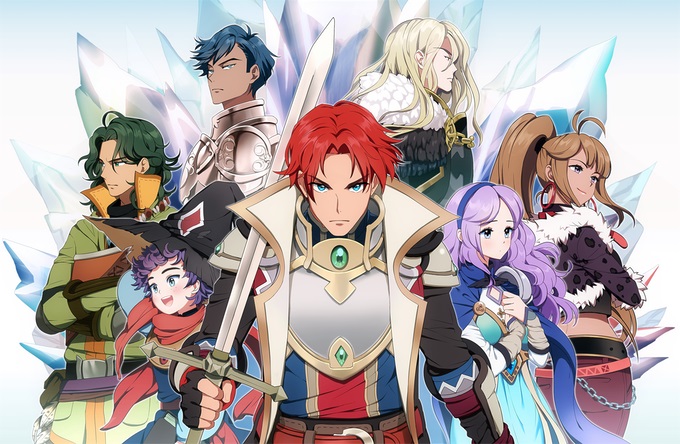
Dark Deity started life as a passionate fan’s project and as someone who loves Fire Emblem, I had been keeping an eye on what seemed to be one of a few SRPGs in the same style as Fire Emblem that would be coming to PC. It definitely has its rough edges – the UI can be a bit clunky; gameplay can feel punishing and there are some characters and tropes that can make you roll your eyes. The lack of a mid-game save option or an in-depth tutorial makes the game feel like it’s missing features and functionality. It *feels* like a fan-made game and not a game developed by a AAA studio and unfortunately, I was not able to shake that feeling while playing Dark Deity.
However, Dark Deity is a game that is greater than the sum of its parts. For fans of the genre, it serves as a callback to the games of old, to the time when the only way SRPG fans could enjoy the latest Fire Emblem was to download an emulator and study a bunch of Japanese because the game only released in Japan on one specific game console that no one owns anymore (Looking at you, Thracia 776). The story is familiar, the characters feel recognizable, and like those older games, grow as you continue to deploy them. In that regard, it is an excellent homage to the past. For newcomers, it boils down the SRPG game to its simplest foundations, to when gameplay was more important than which anime boy/girl you were going to marry at the end of the game. It is clear that the developers love this genre and want to do it justice, to create a modern classic. It’s not a perfect game by any means, but as an SRPG that aims to take the best parts of the genre’s past and bring it to modern audiences, I can wholeheartedly recommend Dark Deity to both fans and newcomers alike.
8/10
Check Out the Dark Deity Steam Surprise Launch Trailer:
Dark Deity is available on Windows PC via Steam for $24.99. A Deluxe Edition bundle is also available, including the OST and digital art book at a discounted price when purchased together. The OST and art book can also be purchased for $6.99 individually.
For more information on Dark Deity, please visit the official website and follow it on Facebook, Twitter, and Instagram and search for #DarkDeity.
Steam Review
My name is Matt Tran and I have been playing video games since I could remember holding a controller. I've always been a hardcore gamer growing up, from the hectic MW2 and Halo 3 lobbies, my many journeys through several Halo clans and my current exploits with my Destiny 2 clan. I love shooters and RPGs and overanalyzing every component of every game I've played, from weapon stats to ideal perks. When I have time to play other games, I currently play Genshin Impact and Star Wars Squadrons.

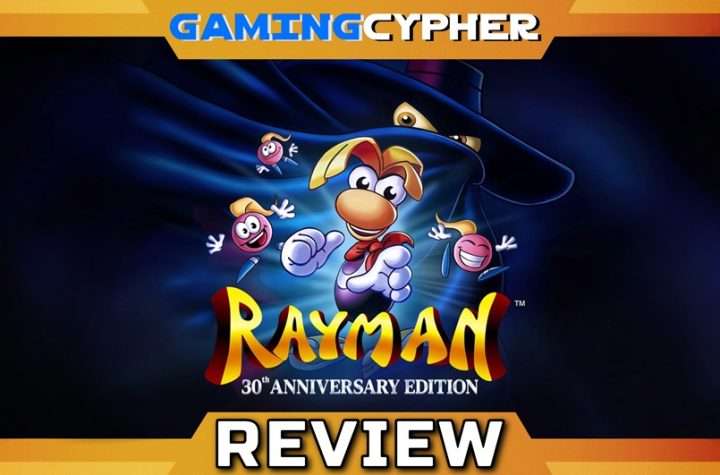
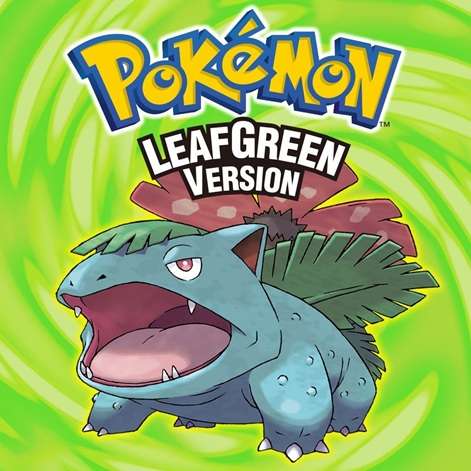
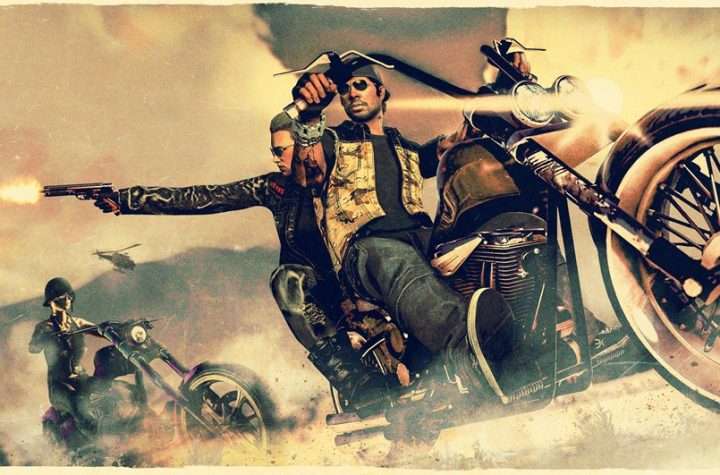
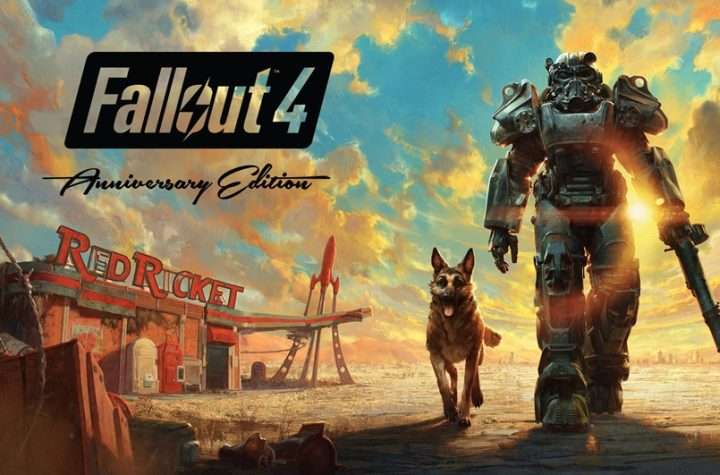
More Stories
Rayman: 30th Anniversary Edition Review for PlayStation 5
GTA Online this Week Features Continued Lunar New Year Celebrations, Increased Sales for Street Dealers, Biker Bonuses, Plus More
MENACE Review for Steam Early Access